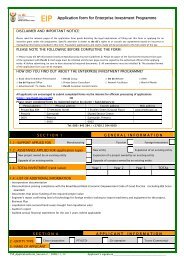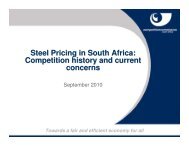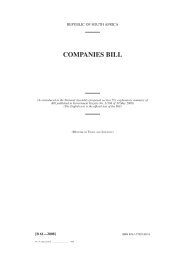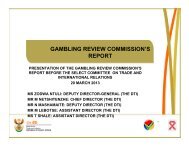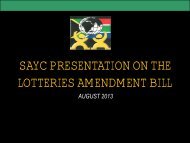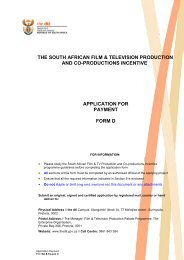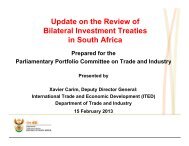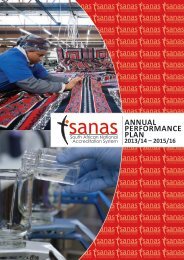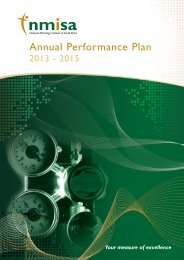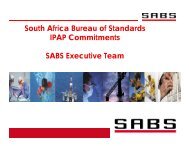Copyright Review Commission Report - ICT Law and Regulation ...
Copyright Review Commission Report - ICT Law and Regulation ...
Copyright Review Commission Report - ICT Law and Regulation ...
- No tags were found...
You also want an ePaper? Increase the reach of your titles
YUMPU automatically turns print PDFs into web optimized ePapers that Google loves.
7.6. PROTECTION OF INDUSTRY AGAINST MUSIC IMPORTSToday, only BBC <strong>and</strong> ITV for the ITV1 channel have local content for obligations. ITV have been fighting a long campaign forreductions in the statutory requirements on regional content, which are costly for them to produce.On radio, there is a more detailed regulatory regime for licensing. The regulator, OFCOM (http://www.ofcom.org.uk/) awardsfor such licences (in areas where there is not enough spectrum to support all applications) has taken into account the natureof the service to be provided (talk, music etc.). There is also a localness code, which includes requirements for material to beproduced in the area to which it is broadcast.7.7. CORPORATE GOVERNANCEThere are no minimum st<strong>and</strong>ards set by the government. Although UK collecting societies are relatively efficient with regardto collections <strong>and</strong> distributions when compared to some of their counterparts in Europe, the government has been workingclosely with PPL <strong>and</strong> PRS in particular to encourage them to operate with minimum st<strong>and</strong>ards of fairness <strong>and</strong> transparency.The Hargreaves <strong>Review</strong> has recommended statutory codes of conduct for collecting societies. The <strong>Review</strong> hasrecommended that collecting societies should be required by law to adopt codes of practice, approved by the IPO <strong>and</strong> the UKcompetition authorities, to ensure that they operate in a way that is consistent with the further development of efficient, openmarkets.Some collecting societies have internal complaints procedures. PRS is the only one that has an independent Ombudsman towhom complaints can be referred if they cannot be resolved internally. PPL has been working on a Code of Practice. TheBritish <strong>Copyright</strong> Council (http://www.britishcopyright.org/) has drafted voluntary codes of conduct that covers all collectingsocieties in the industry.CISAC Statues provide governance rules. Both CISAC <strong>and</strong> individual societies are able to carry out audits of societies withthe potential removal from CISAC for non-compliance. Any changes to the Memor<strong>and</strong>um of Articles or Articles of theAssociation of Collecting Societies must be done in terms of the Companies Act 2006, but requires approval where changeaffects members’ rights adversely.Article 7(c)-(g) <strong>and</strong> Article 9 embodies regulatory restrictions on the duration <strong>and</strong> scope of assignment that PRS may requireits members to enter into.The UK has around 18 collecting societies, usually one per category. Virtually all composers, lyricists <strong>and</strong> music publishers inthe UK have assigned their relevant public performance copyrights to the PRS, which thus has an effective de factomonopoly on the grant of licences for copyright music in the UK. Thus, collecting societies in the UK tend to operate as defacto monopolies or quasi monopolies, hence the two MMC <strong>Report</strong>s (see for example Monopolies <strong>and</strong> Mergers <strong>Commission</strong>(‘MMC’), Performing Rights (1996) H.M.S.O. Cm 3147).- 161 -



